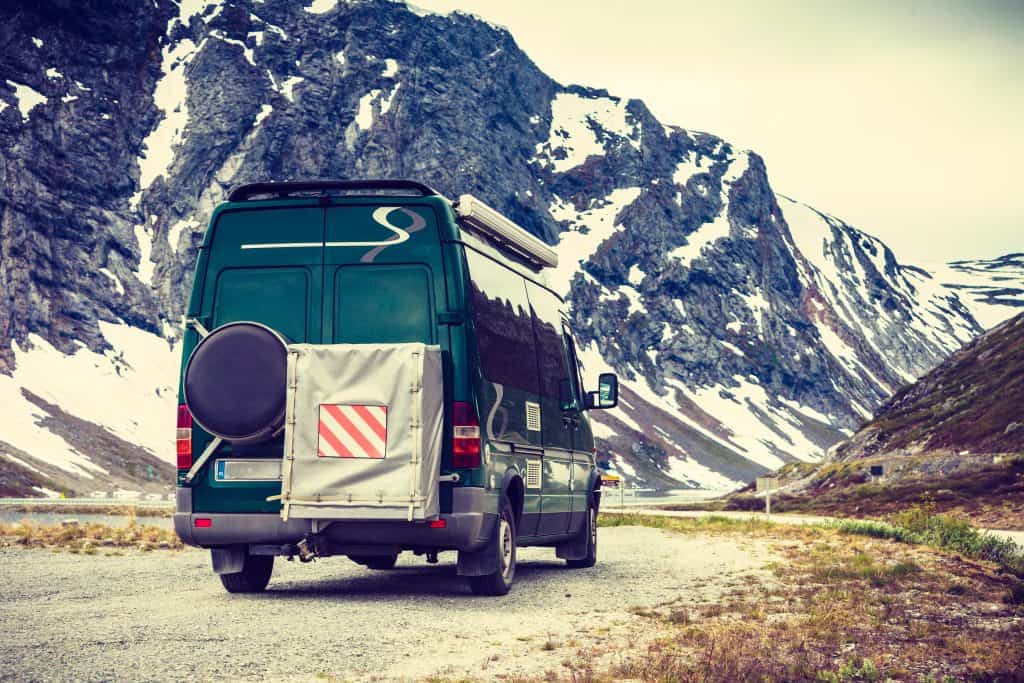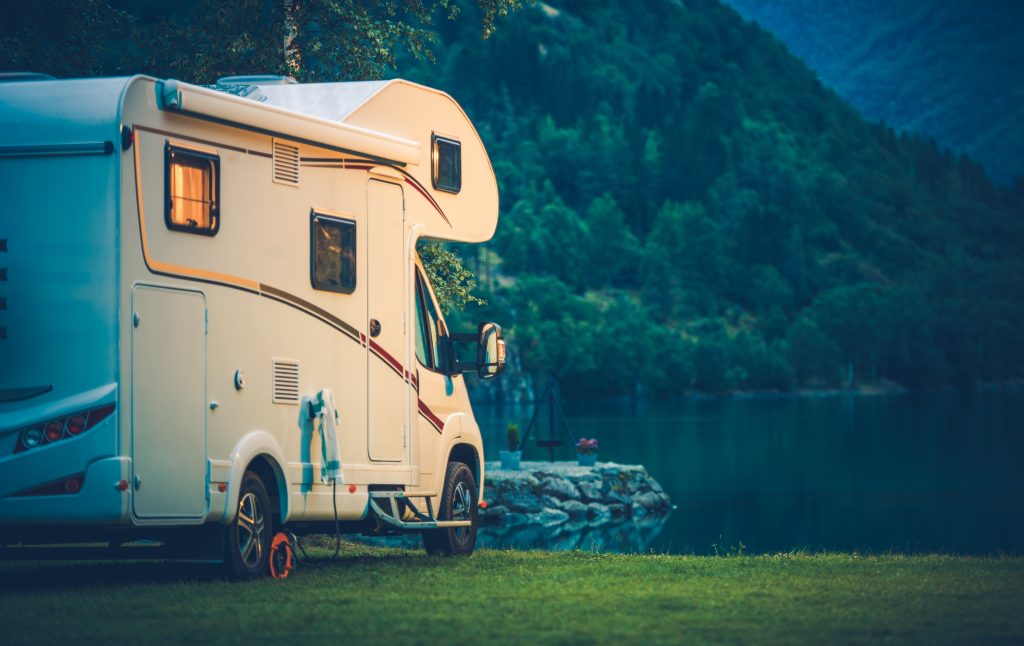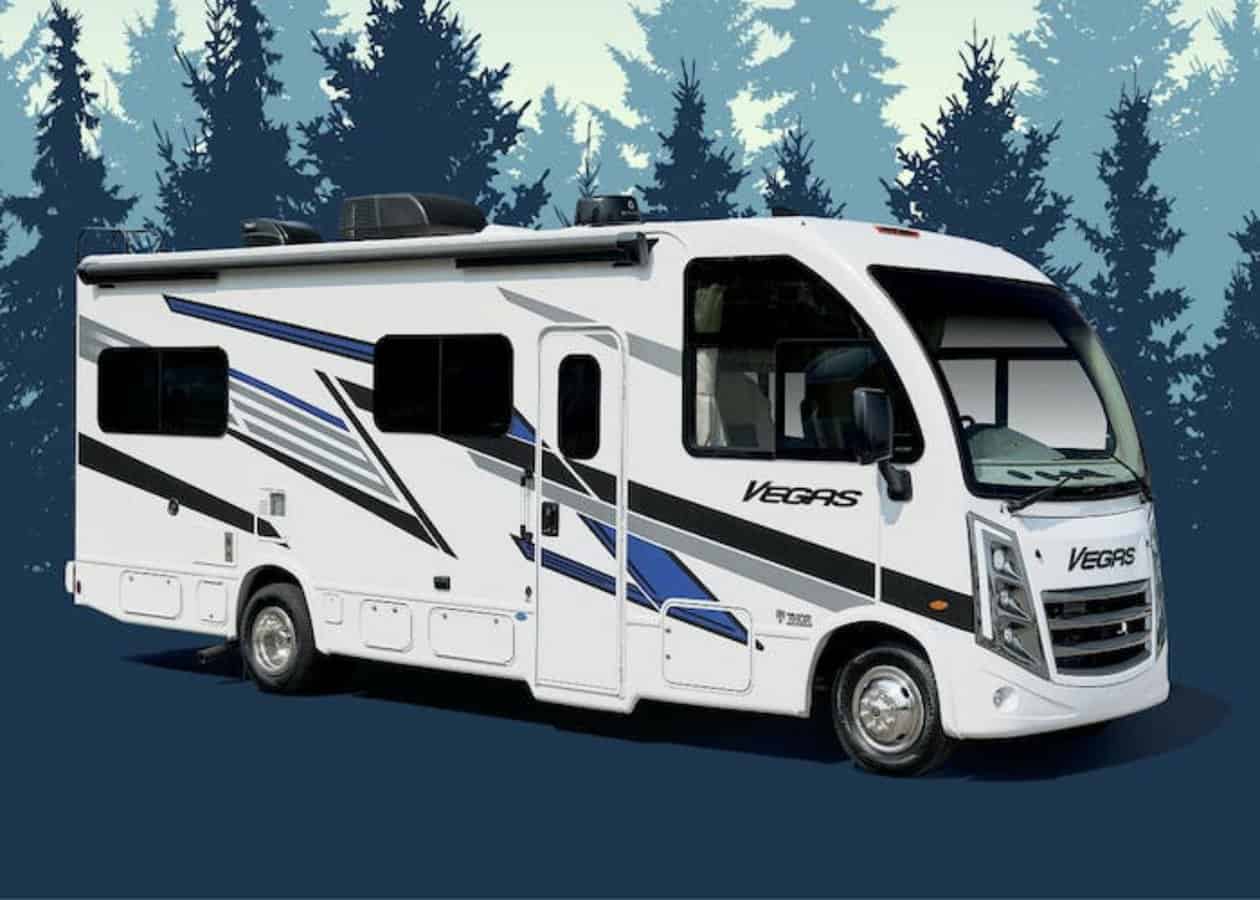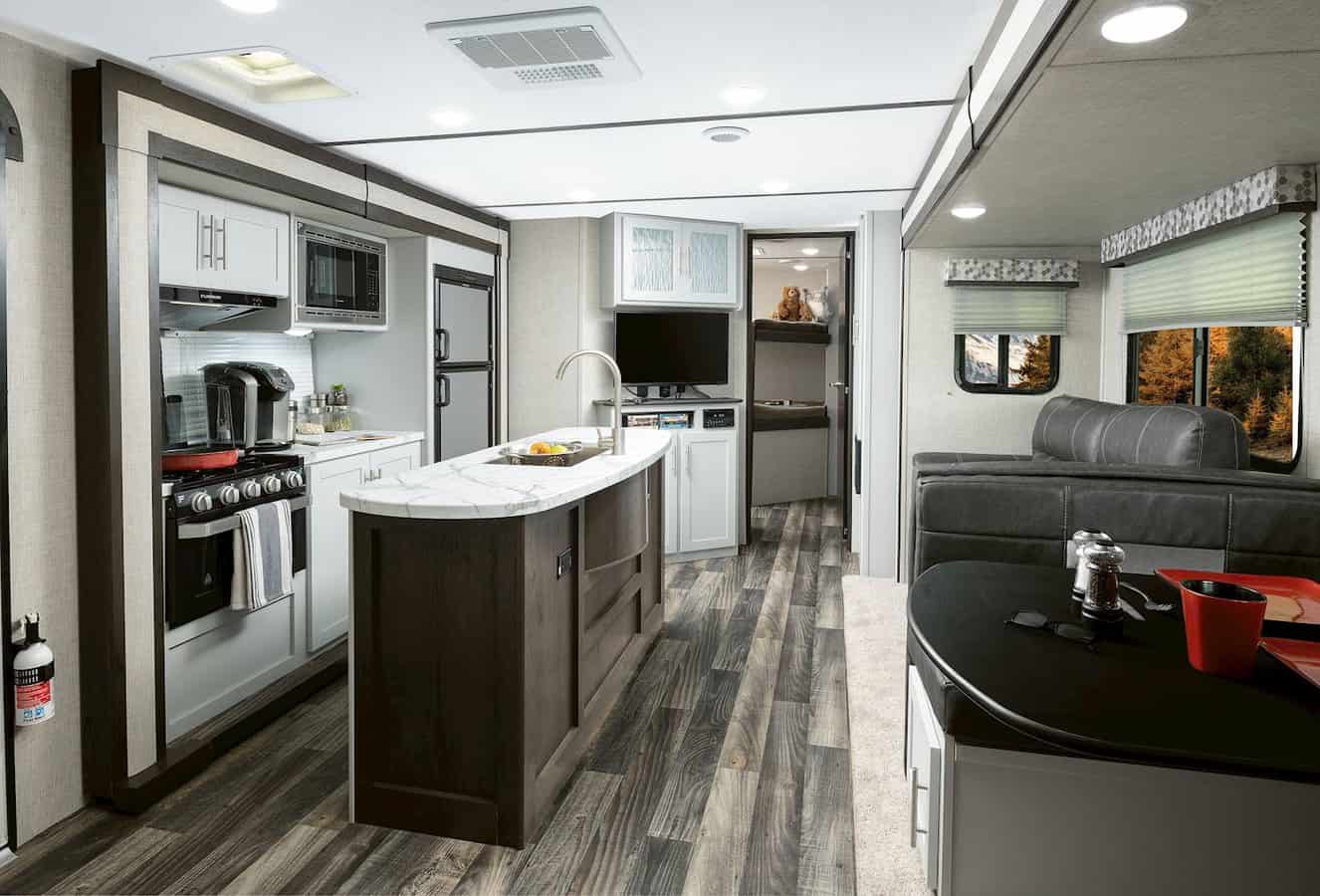
Tax Season is hard for everyone and it seems like it is harder and harder to find things to write-off. But could you write off your RV as a second home?
Can a Motorhome Be a Tax Write Off? Your RV does qualify as a second home for you and your family. The payments you make to the loan will cut down your taxes significantly if you itemize it correctly. But there are some rules to qualify your camper as your second home. It needs to follow certain guidelines and meet the government’s regulations, especially with the new changes.
Tax season seems to get harder and harder into the years. When the kids leave and are no longer your dependents and maybe you downsized your home or are renting a home. Tax breaks don’t come often enough. When we bought our RV it made a world of difference, we were investing in ourselves and not just dropping money down a pit.
What are the Requirements for Motorhomes to Qualify as a Second Home?
The regulations are pretty simple that your RV has to be a place that you could live in reasonably for some time. So there have to be places to sleep, somewhere to cook and eat. And of course somewhere to go to the bathroom.
It also has to pass a safety inspection that it doesn’t have any faulty wiring. Which is highly recommend anyway.
“For you to take a home mortgage interest deduction, your debt must be secured by a qualified home. This means your main home or your second home. A home includes a house, condominium, cooperative, mobile home, house trailer, boat or similar property that has sleeping, cooking and toilet facilities.”
IRS
There have been changes when it comes to what you can and cannot write off. With the changes in 2017, the wording now reads, “all self-propelled vehicles.”
This is hurting the camping community. No longer will they count our fifth-wheels, and other trailers.
“Any self-propelled vehicle designed for transporting persons or property on a public street, highway, or road.”
IRS
This will come into effect with the 2019 tax year. The law passed with the 2018 taxes, and that is what we are all filing now. Big changes have been made with taxes in the last few years. With what is the standard tax deduction and what we can now count.
If you have any questions about what you can itemize contact your accountant. They will be able to inform you on what has changed, with this new tax reformation.

What Type of Write-Off Does a Motorhome Qualify For?
You can qualify for a mortgage tax deduction which is the same that you would qualify for if you were buying any home.
To qualify for this you need to make sure that this loan is secure. It is often best to go through a well-known bank. Like anything that you buy on loan if you are not paying the payments, it can be repossessed by the IRS to pay for the loan. And if you use this as a tax reduction it can have other implecations.
You can take out a second mortgage against your first home, and use it to buy an RV. This will obviously give you the write-off by adding that interest onto what you were already paying on your home.
You will not be qualified for real-estate write-offs because it is not real estate, it is a vehicle.
One can be a sales tax deduction– which is when you can write-off your state income tax or sales tax. When you are itemizing your property.
Being that an RV would be a big ticket item that you buy in the year. The taxes you pay for it can be written off, so you can be refunded what you paid on the RV in your Tax Refund.
Of course, there are exceptions to this rule. Not all states have sales tax including: Alaska, Oregon, Delaware, New Hampshire, and Montana. So be aware of that.
There are always going to be factors according to where you live and buy it. And if you buy it through a licensed sales group or through a private seller. If you buy through a private seller be ready with the necessary paperwork that you are now required to provide by cutting out the middle man.
(No shame in doing it this way, it might be the best way to get the best deal. But just remember that you are putting more responsibility on you and the seller.)
If you decide to use your camper for any business purpose you can also write it off as a business expense.
Using your camper as a business headquarters, renting it out or more can put you under the umbrella of having a business expense. Of course, there are rules to this as well. It has to be used for business purposes for 50% of its use, and you will need the proper documentation of when you use it and when it is used for other reasons.
Using Your RV as a Business

There are no ends to what you can use your RV for in the business world. With such a change in what people want and how they want it. Having businesses that comes to you is revolutionary.
There are companies that come over to your home to cut your hair. Can you imagine, never forgetting another (hopefully) hair appointment. As your hair stylist pulls up and knocks on your door. With a full-service hair salon waiting for you. (It is wonderful, I recommend it entirely)
There are companies that have mobile botox… Yes, get your botox brought to you. I don’t know how much fancier you can get than that.
Companies all overuse this, including companies that travel around to give vaccines.
There small start ups who don’t have to pay the monthly rent for space in a sketchy part of town that just smells weird. Paying for an RV can be seriously cheaper and a good choice for you and your associates.
If you are in a line of business that you need to make connections. This is a good way to use your RV, as a perk for employees to use. Or as something to use to get closer to clients. These are all good ways to use your RV as your business to get a tax write-off.
There are also so many opportunities to rent out your RV if you are not using it personally 50% of the time. You can get off with just renting it to others and counting all the elements that come with that as a write-off. Including repairs, new tires, and more.
But make sure you have your proper documentations. That is the biggest thing as a business owner have your paper work.
Proper Paperwork
I don’t say this to scare everyone, but you need your proper paperwork. No question about it. The IRS is not going to assume you are innocent until proven guilty they are the other way around. They want their money.
So what records do I need if this is my business?
So first some basic things:
- Have a business credit card and debit card. You cannot mix your personal with business. It will cause some issues for you. You cannot give them expensives after the fact. It has to be as it happens.
- Make sure you seperate your revenue from your non-revenue expenses. They will ask you for it, so you better supply.
There is no guessing or sum ups, even if you are low-balling what you actually spend. Make sure you have the correct data.
How Do I Get Started?
Your RV will need to be itemized for it to count towards the sales tax deduction or business deduction. You need to keep your receipts of what you pay into your vehicle. Not only what you paid to purchase the vehicle, but other expenses that are part of it. Especially if you count it as a business deduction.
If you are using it for business purposes you need to have the mileage and usage from other than recreational purposes. The miles, damages and other elements.
The first step that you will take is in February when you normally get your total amount of interest you have paid on loans this year. It appears in your 1098 form that gives you information about how much of the actual borrowing you paid and how much just went to the person supplying the loan.
In Box one it will supply you with this information. You will then place this information of line 10 of the Schedule A tax return information.
If you have someone who does your taxes for you. You are one of the lucky ones and they will guide you through these essential steps.
How Much Will it Deduct?
With changes in taxes and how much is the standard taxing, fewer and fewer people are opting to itemize their taxes. When we are submitting our taxes for 2019, a married couple will have as a standard over 24,000 and a single person will be around 12,000.
This is definitely something to consider, depending on how much your mortgage on your home and RV and other taxable goods. It may not help you as much as it would have in earlier years.
But the law is for your first a second home on the first one million dollars (for both) you can deduct your taxes. So if you do need to itemize it will make a big difference in what you pay to the state and the federal government.
The first year when you pay for the initial sales tax will be the biggest payback for you. And it will continue to give you pay breaks as you continue to pay on it.
How Much is a Basic RV?

RV’s can be pretty expensive enough that most of us would need a loan to buy one. And especially a motorhome which is what we would be looking for if we are wanting to itemize it under the new tax law changes. They can easily run up to 100,000.
This of course depends on what make and model you buy. There are different classes of RV which include the first three letters of the alphabet Class A, Class B, and Class C.
Class A is usually our luxury vehicle that is by far the longest vehicle. Varying from 50- 80 feet long, and can cost anywhere from 75,000 to 200,000. They are usually the ones we see in the front of the lot with the new leather seats.
Class B is our smallest class going anywhere from 18-40 feet long. And is not as luxurious and usually not as wide. Some have pull outs but not many. 35,000 to 60,000.
Class C is our middle man with sizes varying from 45-60 feet long and can cost anywhere from 50,000 to 100,000. Class C is less luxirous than the Class As, it is more functional. They are geared more to the fisherman or normal camper.
The tax break is going to vary according to which RV you buy because the tax you pay on each is going to vary significantly.
When buying an RV for a business, you need to think of what hook-ups you will need. And how many people will be working full-time? Start thinking about how much water you will use and where you will receive your electricity for you and your employees.
Also, think of what you need to remodel anyway to create the aesthetic that you want. If you are going to rip everything out anyway a less luxiorious model might be exactly what you need.
RV Depreciation
Similar to when you buy a car. Often we gear towards the new cars. We know where they have been, they have low miles and no issues. When you are buying an RV the same rules apply.
When you drive off the lot your RV drops about 21% in sell back price. You may get a bigger initial tax refund. But this is something to take into consideration.
Buying an RV is a big commitment, but with the refund, it can be worth buying it.
It is said that the best time to buy an RV is 5 years after its model year. As you are thinking of how much of a write off you need, you are going to want to look at models that fall into this year’s span. You can get a bigger vehicle in this time range for a better price.
Because even with a write-off a loan is still a loan that will need to be paid back at some point.
Is it Worth It?
If this is not something you need for business or something that you ware going to use. Then it is not worth buying. They aren’t investments like property. Their value is going to continue to lower as the years go by just like most cars. Be aware of what your RV is.
But for those of us who love camping and would like just one more reason to convince their family that we need an upgrade after over fifteen years. (Not speaking from personal experience (; ) It might be the deciding factor in a new RV, which is a place of fun and growth for the whole family.
It also is a great investment to buy versus rent when it comes to your business. As you pay into something, there will be something with your name on it in the end versus paying rent forever and not having anything to show for it in five to ten years.
This also gives someone the ability to cater to the owner’s taste and need. Because the vehicle is your own you have the ability to do what you will with it. Knocking down walls and painting which is not always an option in a rented space is now your prerogative.
Always have a game plan for what you want, and what you are going to use the space for before buying a big ticket item like an RV.
Related Questions:
Can I claim my RV as my primary residence? You can claim your RV as your primary residence. But it is not always wise, when this is your primary home a large part of the time it is less than the standard deductions. This means it is more benefical for you not to itemize your home.
Again with the new adjusted taxes each married couple’s standard deduction is 24,000 and a single person is 12,000. Most of the time this will be way above what you will save if your itemize.
Can I write off my boat as a 2nd home? If your boat has a bed, kitchen, and bathroom it does qualify for a second home. But you can only write-off two homes. So your boat will be your second home (unless you only have a boat and an RV). A houseboat is just that a houseboat and can be itemized into your tax deductions.



